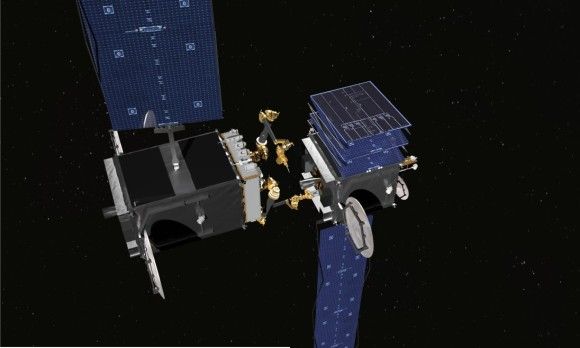Armed Forces
Polish submarine programme faces some delays
The Armament Inspectorate has released information that changes have been introduced in the requirements, regarding procurement of the new Orka Class submarines. The changes made it permissible for the Orka subs to carry long range cruise missiles, and it will also be possible to include the 212A submarines in the procurement proceedings. Additionally it has been assumed that the submarines are to be assembled in Poland, and delivery of the first Orka class sub will be delayed by at least a year.
All of the aforementioned information was released on 25th September this year during a meeting of the Parliamentary Group dealing with the Polish Armed Forces. The meeting was related to the “Proceedings within the scope of procurement of a new type of submarine – current status and presentation of the bidders”.
The meeting was used to present the offers related to the submarine tender. Unfortunately, only two companies have responded to the invitation made by the group leader, Michał Jach MEP: the Swedish Saab AG and French DCNS. The German TMKS Company did not want to attend the meeting. At the beginning the Swedish and the French have presented their submarine sales offers for the Polish Navy to the MEPs.
At the end of the meeting, the Head of the Naval Technology Department of the Armament Inspectorate, Captain Olejnik, has presented the status of the Orka programme, focusing on the period starting in January 2014.
Orka – what has been done?
In accordance with the information provided by the Armament Inspectorate, “in the 3rd quarter of this year the Minister of Defence has approved a request for assessment whether a basic interest of national security exists justifying the request with will to involve, to the fullest extent possible, the Polish arms industry, along with creating a maintenance center on the basis of defence-economic initiatives.”.
The Minister also has signed „…a request related to procurement of the submarines, which included inter alia updated initial tactical and technical assumptions, which included the possibility of implementation of long range cruise missiles…”, which took place in the 3rd quarter of the year (as it has been clarified later on, „the platform needs to be hardware based when it comes to the application of the cruise missiles”).
Captain Olejnik also indicated that „…application of this new type of armament needs to be facilitated by creating a control system related to application of the missiles at different levels of command, along with an independent target database and a mission planning system”.
Representative of the Armament Inspectorate has also stated that „… a change within the requirements regarding the equipment of the new type of submarines has been proposed, by adding the following note: „…at least one electricity generating unit, two battery group units, AIP module and main electric motor”. The 212A submarine may now be included in the tender, since it is equipped with a single electricity generating unit. Before the administrator had required using two units of this type, due to the need of reserving, which was accepted by the Armament Inspectorate.
The clarification of such changes is that competitiveness has been increased and now „…at least 4 bidders may place their offers regarding the new type of submarines.” (besides the Swedish and French offers presented in the Parliament, additionally Spanish, German and Korean options may be considered). „That means that the analytical-conceptual phase has been fully completed”.
What’s next in the Orka programme?
In the eyes of the Armament Inspectorate, “procurement of the cruise missiles shall be preceded with an in-depth analysis of the security policy of the Republic of Poland and the tasks to be fulfilled by the Polish Armed Forces.”.
Next step is to start proceedings which are dependent on the development of the offset assumptions created by the offset committee. Due to the fact that the interest related to the national security is present, acquisition of the submarines will be executed in accordance with the 118/MON decision made on 25th April 2014.
The proceedings will then be carried out in an „…open order mode, treating the contractors equally”. The acquisition process will have two stages, where firstly a commission would be created by the head of the Armament Inspectorate, which will take place in October 2014. Later on, the procedures related to acquisition of the submarines, release of the procurement notice, filing in the contractor’s requests for being included in the proceedings, analysis of the requests and distribution of invitations to indicate the initial offers without the prices will be commenced.
Stage I will include:
- preparation of the initial offers by the contractors – without indicating the price;
- analysis of the initial offers and distributing negotiation invitations;
- contractor negotiations;
- creating conclusions related to the negotiation process;
- development of changes in the initial tactical and technical assumptions;
- accepting the changes in the assumptions by the Minister of Defence and the administrator;
- distributing invitations to place the final offers.
Stage II will include:
- preparation and placing the final offers by the contractors;
- assessment and choosing the best offer;
- signing the contract – planned deadline – until the end of 2015;
- deliveries of the submarines are planned as late as in 2022 – 2023.
We must remember though, that at the end of November 2013, head of the Armament Inspectorate, General Sławomir Szczepaniak, has informed that the first submarine is to be delivered in 2019 (four years after signing the contract).
In case the new submarines would be build in Poland, the Armament Inspectorate suggests that the construction process “…would involve mainly assembly of the building blocks delivered by the technology supplier. It is assumed that the first submarine will be build abroad, and during the works the Polish specialists who would be assembling another two examples in Poland would be trained. In that way a technology transfer and technical infrastructure would be provided, which would make it possible to carry out repairs and modernization of the submarines throughout the period of use in Poland, which would aim at getting independence within the scope of maintenance.”
The Armament Inspectorate, on the basis of sect. 43, related to section 12 subsection 2 of the 72/MON decision made on 25th March 2014, related to acquisition of military equipment and services for the Polish Armed Forces in March and April 2014, has been involved in a technological dialogue related to the potential acquisition of the new type of submarine. Operational Requirements were the basis for undertaking the works aiming at complementing the Feasibility Study and the Initial Tactical and Technical requirements (on the basis of 72/MON decision by the Minister of Defence from 25th March 2013, regarding acquisition of military equipment and services for the Polish Armed Forces). Through the analysis created for the needs of the initial tactical and technical requirements, which in the case described were a part of the technical dialogue, works on redefining the armament programme have been undertaken. The Operational Requirements redefining process has been carried out on the basis of 25/MON decision made on 7th February 2014. This decision clarified the issue of implementing the “Guidelines for carrying out a Review of Operational Capabilities of the Polish Armed Forces”. The proposed changes need to be considered within the scope of their meaning. The key issue is to achieve operational capability, which is accessible with the use of the devices readily available within the market. At the same time competitiveness shall also be taken into account, as well as alternative solutions, which may be beneficial throughout the whole lifecycle of the acquired military equipment.

